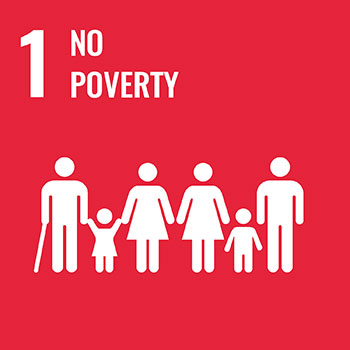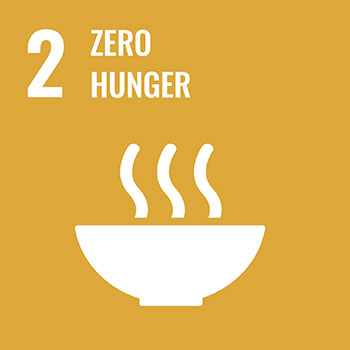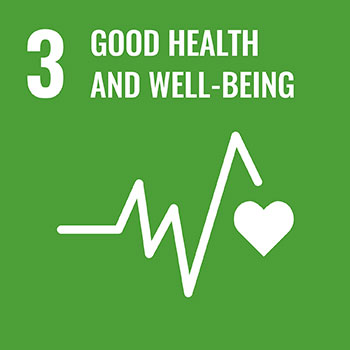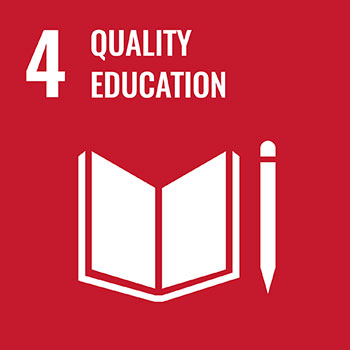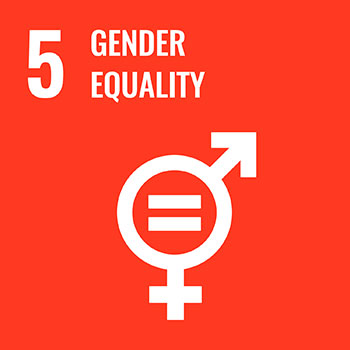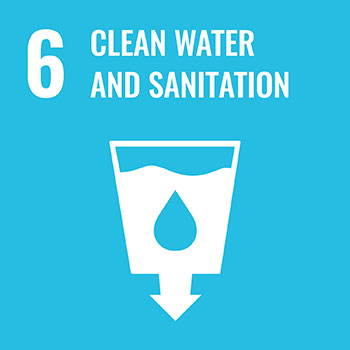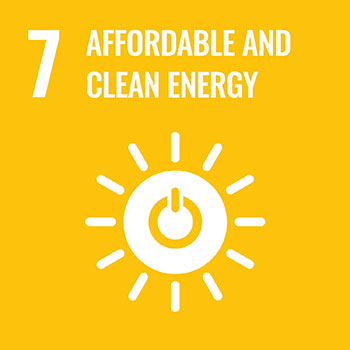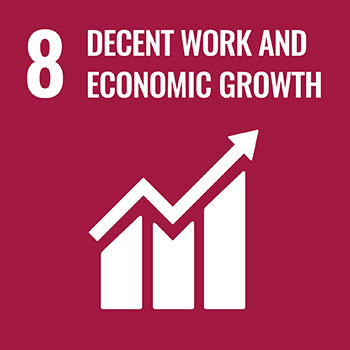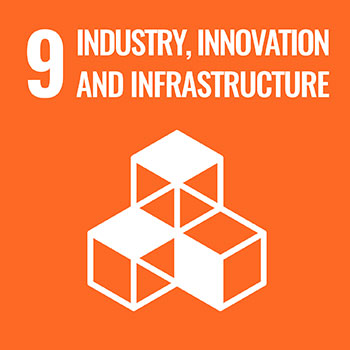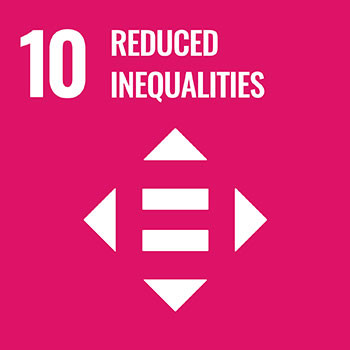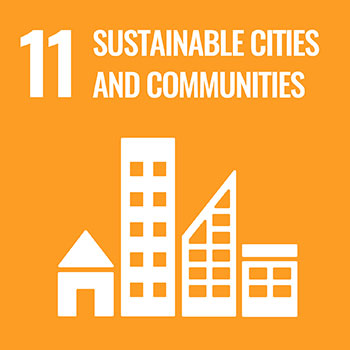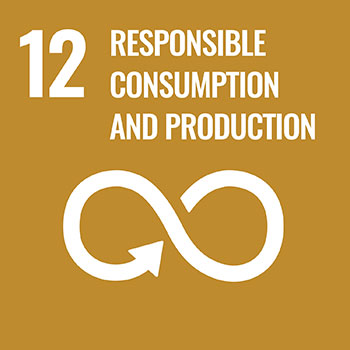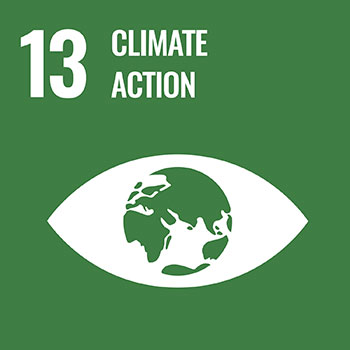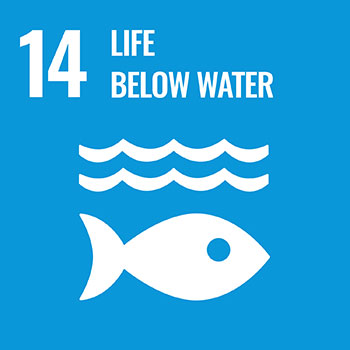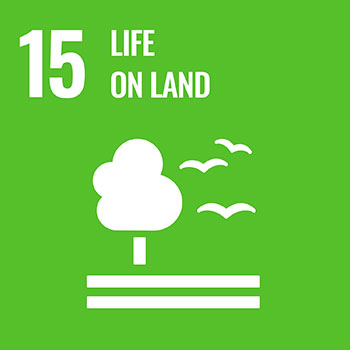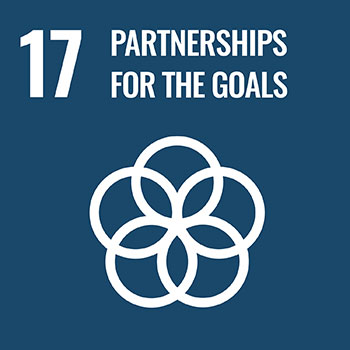Search for academic programs, residence, tours and events and more.
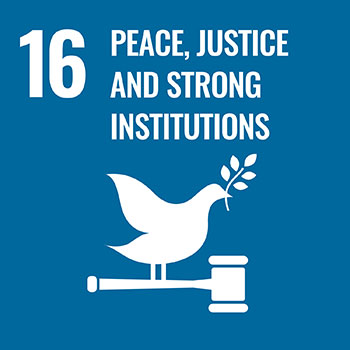
Promote peaceful and inclusive societies for sustainable development, provide access to justice for all, and build effective, accountable and inclusive institutions at all levels.
Wilfrid Laurier University's contributes to SDG 16 by fostering peace, justice, transparency and inclusivity on its campuses and within the broader global community. Through engaged work with government and non-governmental partners, Laurier is actively seeking ways to positively impact society.
The work that Laurier completed in 2024 to advance SDG 16.
Times Higher Education (THE) has ranked Wilfrid Laurier University among the top 15 per cent of global universities in its 2024 University Impact Rankings. THE assessed 2,152 universities in 125 countries that are working toward the United Nation’s Sustainable Development Goals (SDGs), a strategy to address challenges including poverty and climate change. In addition to ranking among the top 15 per cent globally, Laurier ranked in the top 20 per cent for SDG 16, Peace, Justice and Strong Institutions.
The BSIA celebrated the successful launch of the Migration + Technology Hub. The Hub will engage in developing innovative approaches to the study of migration, supporting research on contemporary migration technologies and migrant rights. It aims to tackle diverse issues including reducing inequalities, promoting sustainability and protecting human and labour rights of migrants.
ISOW embarked on an advocacy trip to Ottawa to further their mission of supporting refugee and at-risk students. The team is seeking ways to replicate the ISOW model nationwide in a manner that complements the Government’s existing commitment to promote private sponsorship of refugees.
Nuha Dwaikat-Shaer bridges architecture and social work to confront systemic injustice. She is examining how power operated through place and policy. in response to the ongoing violence in Palestinians in Gaza, she is part of an ongoing research effort examining its impact on Palestinian, Muslim, and Arab scholars and students in Canada.
Since the COVID-10 pandemic, courts have continued operating with a hybrid model, embracing the use of digital courtrooms. While convenient for some, Kaitlin Humer (MA '24) discovered this model may not work for people experiencing homelessness.
Laurier research centres advancing SDG 16.
The Tshepo Institute for the Study of Contemporary Africa (TISCA) is a university-wide research centre with active members across multiple faculties involved in Afrocentric research projects. TISCA’s vision is to provide scholars specializing in Africa with a platform and voice to produce and share timely interdisciplinary knowledge and discourse about issues affecting contemporary Continental Africa and its diaspora. TISCA’s mission is to promote global awareness and excellence in knowledge development on issues in contemporary Africa and the African diaspora in Canada and beyond.
The International Migration Research Centre (IMRC) serves as a node of excellence in scholarship and research, social and cultural debate, and policy formulation pertaining to international migration. The IMRC's mission is to create platforms for debate, research, policy analysis, community engagement and proposal development related to international migration and mobility at global, national, regional and local scales.
The United Nations Development Program provides a framework for defining “human security” as a freedom from fear, want, poverty and despair, and the work of the Centre for Research on Security Practices (CRSP) both engages and extends this definition. The centre does so by thinking through global and state-level practices of security and securitization that uphold structural forms of power and which, somewhat paradoxically, leave particular populations vulnerable. CRSP takes this tension as the heart of its work and the place through which a more fulsome and productive notion of security may be generated.
Laurier initiatives in 2024 that advanced SDG 16.
Undergraduate students
Laurier recognizes the Wilfrid Laurier Students' Union as a democratic organization governed directly by the students. The Students' Union is a not-for-profit corporation governed by a Board of Directors. This group of 12 individuals monitors the performance of the organization through the President and Chief Executive Officer. The President and CEO oversees the operations team including the Executive Leadership Team.
The Laurier Students’ Union is comprised of over 19,000 undergraduate students across Brantford and Waterloo. All students are automatically a member of the Students’ Union and the Students’ Union heads over 300 social clubs and volunteer committees.
The Students' Union provides a number of supports and services for students including:
Graduate Students
The Graduate Students’ Association (GSA) is a not-for-profit operated by graduate students of Wilfrid Laurier University for graduate students of Wilfrid Laurier University. All graduate students are automatically members of the GSA. The GSA is a not-for-profit corporation governed by a Board of Directors.
The mission of the GSA is to recognize the unique perspectives of its diverse membership, to identify common threads that can bring all graduate students together, and to amplify the collective voice to advocate on all graduate students’ behalf.
The GSA provides a number of supports and services for students including:
Laurier excels at creating a culture of community engagement. The Government and Community Relations team works with campus partners to identify and build enriching partnerships with community organizations and local, provincial and federal government officials.
The Indigenous Education Council Founded (ICE) was created to promote a positive educational experience and the success of Indigenous students at Laurier. The IEC is comprised of university administrators, faculty, students and external Indigenous community members. It is committed to developing and supporting Indigenous educational aspirations through curriculum, programs, services and research at Laurier. The IEC is committed to the Laurier Strategy as well as the Laurier Indigenous Strategic Plan. The IEC Terms of Reference outline how external community partners are engaged in the ICE.
Under the Ontario Animals for Research Act, the Canadian Council of Animal Care Guidelines for the Care and Use of Experimental Animals, and Laurier’s Policy 11.5 Use of Animals in Research, Testing and Teaching, all researchers who will be conducting research, testing or teaching projects at Laurier involving the use of animals must obtain approval of the university's Animal Care Committee (ACC) before research can begin. Two members of the external community sit on the ACC and the ACC terms of reference outline how community members are engaged.
All research (both funded and non-funded) involving human participants and human biological materials that is considered to be under Laurier’s jurisdiction/auspices must obtain Research Ethics Board (REB) clearance prior to commencement. In accordance to the REB terms of reference, the board must include two external community member.
Further, the Wilfrid Laurier University Act provides for external community representation on the Board of Governors and outlines how those members are appointed to the Board. The Board of Governors has 34 members, including six members appointed by the Lieutenant Governor in Council of the Province, eight members from the community-at-large to represent a broad spectrum of the public, and three members appointed through the cities of Waterloo and Kitchener and Regional Municipality of Waterloo.
Laurier’s Strategic Action Pan has four main focus areas, including ‘Enrich Community Engagement and Partnership.’ The plan outlines strategic actions the university is taking to increase external community engagement, including:
Our researchers are engaged in the communities of our home locations including Waterloo, Kitchener, Brantford, and Yellowknife. The following research centres/initiatives have strong community components:
Laurier helps organizations work with students and alumni through the following mechanisms:
There are many ways Laurier connects with alumni.
The Wilfrid Laurier University Act provides for broad representation on the Board of Governors to ensure that all members of the university community have a voice and input.
The Board of Governors has 34 members, including six members appointed by the Lieutenant Governor in Council of the Province, eight members from the community-at-large to represent a broad spectrum of the public, and three members appointed through the cities of Waterloo and Kitchener and Regional Municipality of Waterloo.
Under the Ontario Animals for Research Act, the Canadian Council of Animal Care Guidelines for the Care and Use of Experimental Animals, and Laurier’s Policy 11.5 Use of Animals in Research, Testing and Teaching, all researchers who will be conducting research, testing or teaching projects at Laurier involving the use of animals must obtain approval of the university's Animal Care Committee (ACC) before research can begin.
The ACC membership and representation consists of:
All research (both funded and non-funded) involving human participants and human biological materials that is considered to be under Laurier’s jurisdiction/auspices must obtain Research Ethics Board (REB) clearance prior to commencement. In accordance to the REB terms of reference, the board must include two external community member.
For more than 30 years, Laurier staff, faculty and retirees have banded together to support our communities through Brant United Way and United Way Waterloo Region. Laurier's partnership with United Way helps foster positive community relations, providing a big impact on individuals accessing these services.
Laurier faculty and staff support the community through the "Our Laurier" community campaign.
Laurier has several policies that outline in approach to prohibiting any corruption, bribery or any action that is not fair dealing.
The Policy outlines that Research Misconduct can include, but is not limited to: Fabrication; Falsification; Destruction of research records; Mismanagement of conflict of interest; Misrepresentation; Mismanagement of grant and award funds;Failure to fulfil compliance and other requirements including policies, laws or regulations
The Wilfrid Laurier University Act sets out the objects of the university as “the pursuit of learning through scholarship, teaching and research within a spirit of free enquiry and expression” (s.4).
Laurier is strongly committed to upholding free speech and free expression on its campuses. Our commitment is reflected in our founding documents and policies, and has been recently further articulated in our Statement on Freedom of Expression.
Through the the Faculty of Human and Social Sciences (FHSS) Laurier Brantford Centre for Professional Development Laurier is committed to supporting the upskilling and capacity building of policy and law-makers working in the realm of the SDGs. The Centre creates customized training for municipalities and organizations on a variety of topics, including:
Laurier is deeply committed to academic freedom, freedom of expression and fostering an inclusive environment where everyone is welcome to engage in research, teaching and learning. The university is proud to provide a neutral platform and "safe" space for individual with different viewpoints, including political, to come together to frankly discuss challenges. For example:
The Centre for Public Ethics at Martin Luther University College (federated with Laurier) promotes dialogue, research and education on the choices we make together in support of the public good. The Centre promotes dialogue, research and education public ethics which is about the life choices made to serve the common good — whether to serve our neighbours across the street or around the world. The Centre and its members engage in a number of activities including podcasting, events and the writing of op-eds as they related to public ethics.
The Balsillie School of International Affairs (BSIA) is an institute for advanced research, education, and outreach in the fields of global governance and international public policy. Founded in 2007 by philanthropist Jim Balsillie, the BSIA is an equal collaboration among the Centre for International Governance Innovation (CIGI), the University of Waterloo (UW), and Laurier. The School provides a platform for academics and students from diverse fields to come together around pressing global challenges, including conflict and security; environment and resources; global institutions; diplomacy and justice; global political economy; and migration, mobilities and social politics.
Department of Political Science hold lectures, including the Barry Kay Lecture Series, panels, and public events, to encourage open discussion on political theory and current affairs.
Discover how Laurier is contributing to United Nations Sustainable Development Goal targets.
